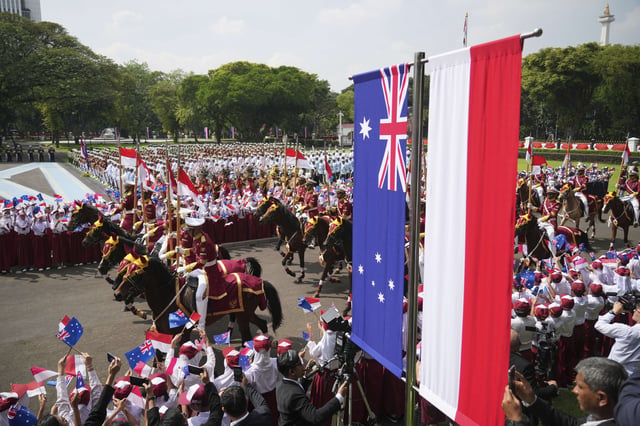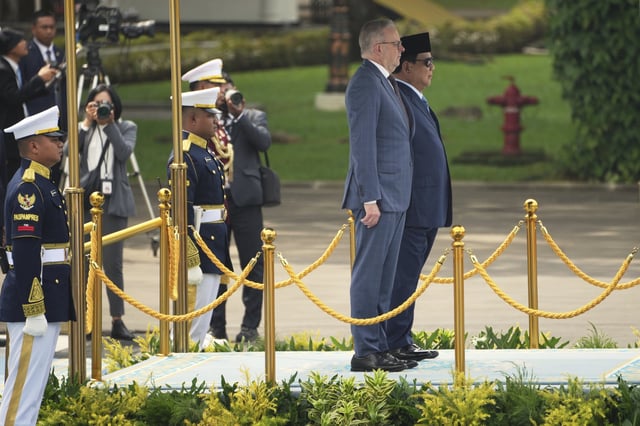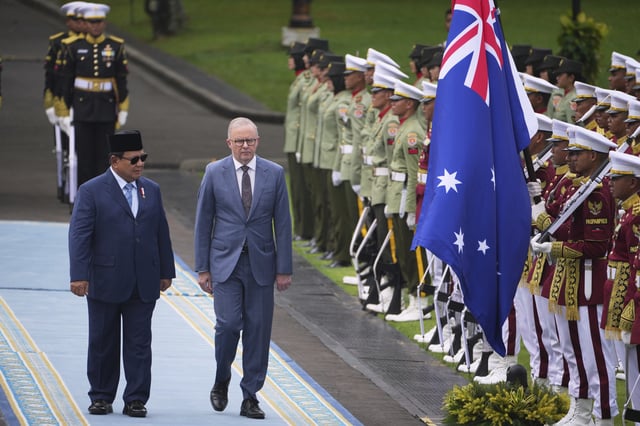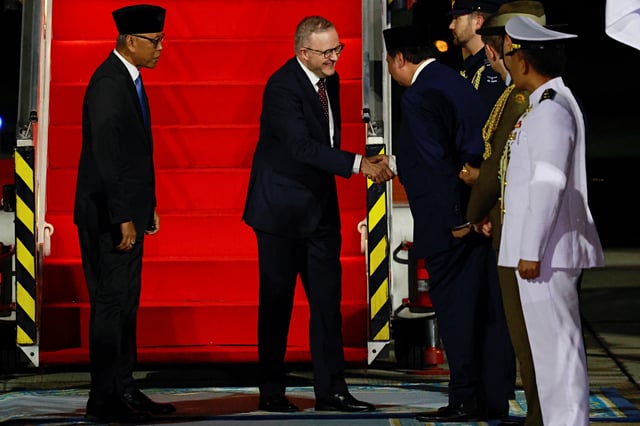Overview
- Prime Minister Anthony Albanese has chosen Indonesia for his first overseas visit after his May 2025 election victory, underscoring its priority in Australia's foreign policy.
- Discussions with President Prabowo Subianto focus on expanding defence ties under the 2024 security treaty and enhancing military interoperability.
- The leaders are exploring deeper economic collaboration, including critical minerals trade and renewable energy projects like the $30 billion Sun Cable initiative.
- Indonesia, the world’s fourth-most populous country, aims to accelerate its economic growth from 5% to 8% and become the fourth-largest economy by 2045.
- Amid growing Chinese and Russian influence, Australia seeks to strengthen its strategic partnership with Indonesia while respecting its non-aligned foreign policy stance.



